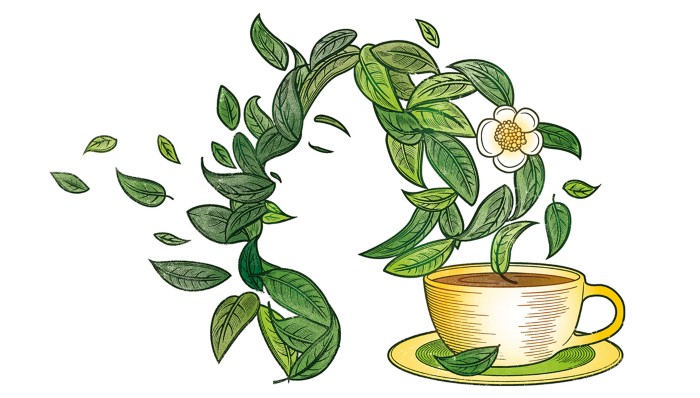Teatime, Everyone!
"Tea has been consumed for centuries for its relaxing and social benefits. However, research increasingly shows that drinking from childhood to older age offers a range of health and well-being benefits.""Studies show that benefit for health and well-being are seen at daily intakes of two to four cups -- and it doesn't matter whether you choose regular black tea or green tea.""While the polyphenol compounds in tea have attracted the most attention for their antioxidant and anti-inflammatory effects, other compounds in tea are also important. These include L-theanine and caffeine, which have been proven to influence the brain and cognitive function by improving alertness and helping us to maintain concentration levels."Pamela Mason, public health nutritionist, Wales"We know that tea drinking is a marker of reduced risk of developing cardio vascular disease and dying from a stroke or heart attack, but we also understand why.""Clinical and laboratory studies show that tea polyphenols limit cholesterol absorption in the gut, and target receptors which regulate blood cholesterol levels. Tea polyphenols also relax blood vessel smooth muscle and boost nitric oxide levels – both of which help to lower blood pressure. Tea is also a potent antioxidant and can lower inflammation in the body."Tim Bond, member, Tea Advisory Panel"The benefits of tea consumption are present at all stages of life from infancy to old age and long-term tea consumption promotes long term well-being.""Research increasingly shows that consuming tea Camellia sinensis throughout life from childhood to older age offers health and well-being benefits including hydration, mental and cognitive health benefits, cardiovascular health, metabolic health, bone health, gut health and immune health."Research study, published in Nutrition and Food Technology
 |
| Credit Shutterstock |
- Drinking green tea as part of a weight loss diet results in an extra 3.3 kg (1/2 stone) lost over 12 weeks;
- Four cups of tea daily are linked with a 10% reduced risk of type 2 diabetes mellitus;
- Regular tea drinking is associated with a 38% lower risk of osteoporosis – a serious disease which causes bone fractures;
- Tea could help immunity as it can neutralise pathogens found in the upper respiratory tract.
The study expresses the opinion, surprising to some, that parents should encourage their young children to drink tea, making in part of a daily routine. The combination of flavonoids and hydration imparted by tea, according to the study's main author, Pamela Mason, vastly outweigh any other consideration. Consider tea a substitute for sodas dripping with sugar, or even the empty calories in sweetened fruit juice.
The plant from which tea is derived -- Camellia sinensis -- has properties leading to a heightening of cardiovascular health while invigorating the immune system, with regular consumption over a lifetime of regular tea-drinking.
The study points out that L-theanine, an amino acid present in both green and black tea, helps to reduce stress, leads to relaxation, and improves brain function, in conjunction with caffeine. EGC, furthermore, a flavinoid polyphenol in green tea, elevates nitric oxide levels, helping to reduce blood pressure.
 |
| Credit: Susan Burghart |
Labels: Health and Wellness, Tea Consumption

0 Comments:
Post a Comment
<< Home